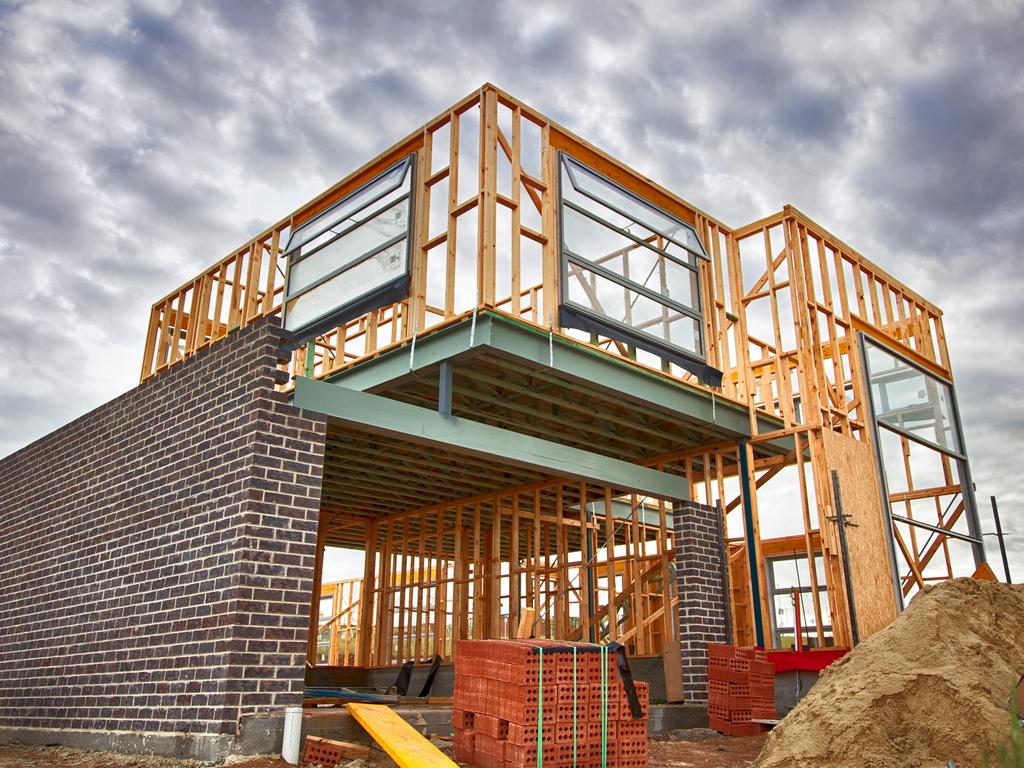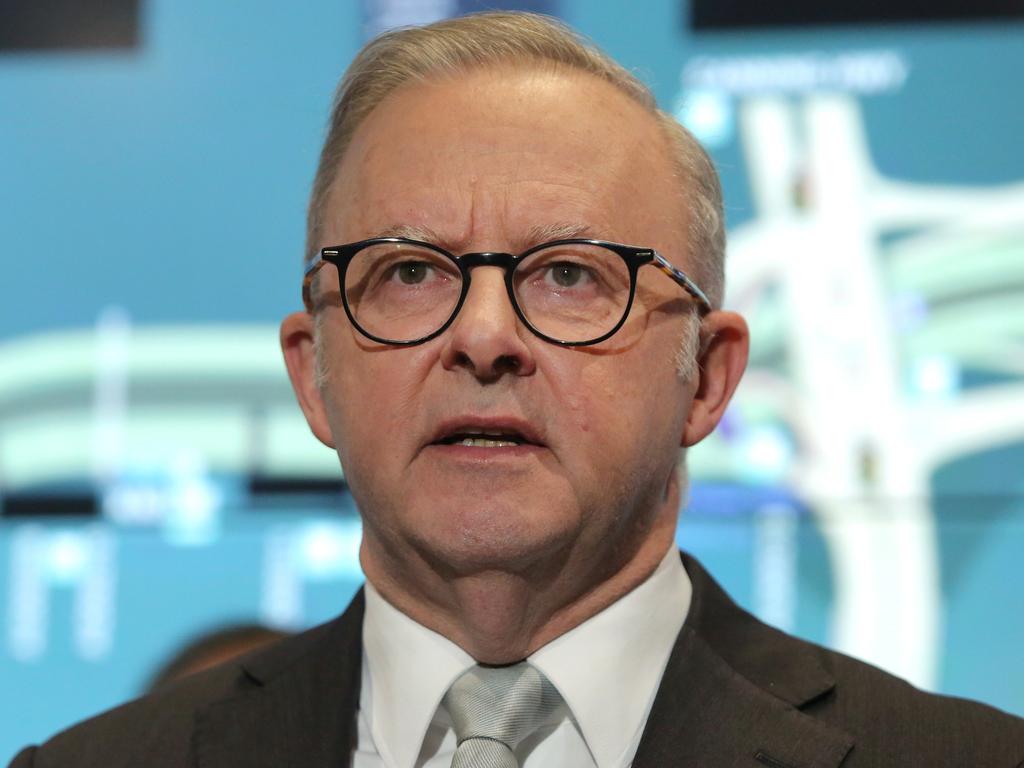Albanese government will not rule out ‘carbon tariffs’ on building materials despite current industry pressures
One of Australia’s shakiest industries could be set for another round of setbacks following comments from Energy Minister Chris Bowen this week.
Australia’s under pressure building industry could be set for another round of setbacks following comments from Energy Minister Chris Bowen this week.
As construction companies go broke at alarming rates across the country, new environmental measures slated for the near future could drive up operating costs even further.
Speaking about Australia’s 2030 emissions goal, Mr Bowen hinted the Albanese government could consider so-called carbon tariffs on high-emission imports like cement and steel in its next term, imploring that the nation needs to “do more” to meet climate targets.
Later this year, the government will need to outline its emissions reduction target for 2035, guided by recommendations from the independent Climate Change Authority.
Mr Bowen indicated the government is open to new policy tools if current measures prove insufficient.
Among them is the idea of a carbon border adjustment mechanism, which would apply tariffs to imports from countries without equivalent carbon pricing. The government, like many others around the world, is trying to avoid what’s known as carbon “leakage”, where emissions-intensive production is simply moved offshore.
The mechanism is currently under review by ANU Professor Frank Jotzo, whose early analysis flagged clinker, cement and lime as particularly exposed sectors.
Steel, ammonia, and glass were identified as medium risk.

MORE: Trump move puts Aus construction sector at risk
“We have been clear that we want to ensure Australian industry is best placed to compete in a decarbonising world,” Mr Bowen said.
“What could be the case is … we look at particular sectors first around cement and lime, [which] are places that we looked at in particular, but I’m not going to get in front of the process … We’ll have more to say during the course of this term.”
His comments have beet met with heavy criticism from conservatives, who traditionally favour stability for businesses as opposed to regulations with ambiguous outcomes.
Opposition energy spokesperson Dan Tehan accused Mr Bowen of pulling the rug out from under industries that would be negatively impacted by environmental regulations.
“Before the election, Chris Bowen, this arrogant minister, said nothing about carbon tariffs. Yet here he is immediately after the election talking about putting them in place,” Mr Tehan said.

Australia’s emission target ‘on track’: Bowen
Mr Bowen said that while 2024 emissions data showed limited progress, Australia remains broadly on track to reduce emissions by 43 per cent by 2030.
“We’ve never suggested it’s a linear line … But with the right approach from government, yes, we can continue to be on track [despite] facing headwinds and challenges from time to time,” he said.
The comments come days after the federal government extended the licence for the North West Shelf, Australia’s largest oil and gas project, for another 40 years.
That particular move was heavily panned by environmentalists.
Mr Bowen defended the approval, which came from Environment Minister Murray Watt, saying it adhered to existing legal frameworks that don’t factor in emissions. He added that reforms to those laws remain pending.
“The decision … was made according to the very strict criteria of the environmental approvals legislation,” he said, noting that the site is already covered by Labor’s safeguard mechanism, which requires major polluters to cut emissions or offset them.
“It’s already obliged to be reducing emissions today and it is,” he said.
MORE: Hidden cost behind Australia’s homebuilding struggles

“The whole idea of the safeguard mechanism is to send the message to the boards to say, ‘Hey, you know, you should start investing in onsite emissions abatement here, because we’re going to require you to buy offsets if you don’t.’”
Meanwhile, the US government recently raised tariffs on steel imports in a move that prompted pushback from Canberra amid disruption concerns.
Mr Bowen downplayed the influence of the Trump administration’s stance on global climate efforts.
“The United States is around 12 per cent of emissions globally. That’s a lot, but it doesn’t mean that the rest of the 88 per cent of us stop doing things.”
He reaffirmed Australia’s bid to host a future global climate conference in Adelaide, describing it as a platform to highlight the country’s transition.
“A conference that knocks it out of the park is our intention for Australia to showcase ourselves, to highlight the jobs opportunity for a traditional fossil fuel country like ours, that we can and will embrace the transition.”




